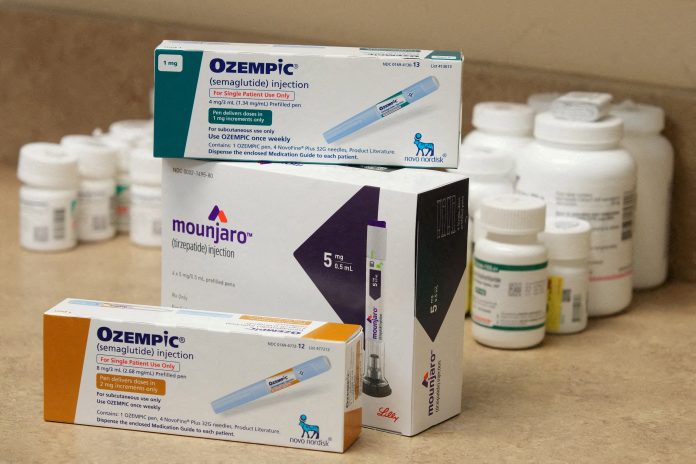The EU drug regulator found no evidence that a class of diabetes and weight-loss drugs, such as Novo Nordisk’s hugely popular Wegovy, are linked to suicidal thoughts, Irish Examiner reports.
The regulator’s Pharmacovigilance Risk Assessment Committee, which monitors side effects of medicines, said no updates on the treatments were required after reviewing the available evidence.
The conclusion came after the European Medicines Agency in December extended its review of a class of weight loss and diabetes drugs known as GLP-1 receptor agonists to obtain more data from manufacturers to investigate the issue further.
The analysis began in July after the Icelandic health regulator noted three cases of patients taking Novo drugs thinking about suicide or self-harm. The focus was on drugs containing semaglutide or liraglutide, both GLP-1 targeting compounds.
Liraglutide is the active ingredient in Novo’s weight-loss drug Saxenda, while semaglutide is the active ingredient in Wegovy and the best-selling diabetes drug Ozempic.
The committee said it also analysed the results of a recent study that found no direct link between semaglutide use and suicidal ideation. In addition, the results of another EMA study of people with type 2 diabetes did not support a link between the use of GLP-1 drugs and the risk of suicide and self-harm.
GLP-1 receptor agonists, originally developed to control blood sugar levels in diabetic patients in Novo Nordisk’s Ozempic and Eli Lilly’s Mounjaro, also slow digestion and reduce hunger.
An increased risk of suicide has led regulators to issue strict warnings about obesity drugs in the past, and Sanofi’s Acomplia, which never won approval in the US, was withdrawn in Europe in 2008 because of links to suicidal thoughts in patients who took the drugs.
In October, PRAC said it had found no causal link between GLP-1 drugs and thyroid cancer after a review.
